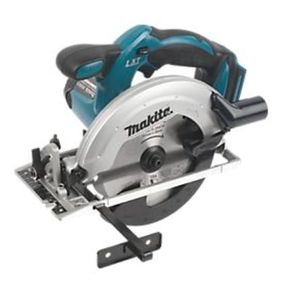Circular Saw: Difference between revisions
From DT Online
m Corrected link |
m Added Template |
||
| Line 9: | Line 9: | ||
---- | ---- | ||
The term ''‘circular saw’'' may be generally to applied to a '''[[Table Saw]]''' or '''[[Table Saw|Bench Saw]]''' and a '''[[Chop Saw]]''' or '''[[Radial Arm Saw]]''' also has circular saw blades. | The term ''‘circular saw’'' may be generally to applied to a '''[[Table Saw]]''' or '''[[Table Saw|Bench Saw]]''' and a '''[[Chop Saw]]''' or '''[[Radial Arm Saw]]''' also has circular saw blades. | ||
{{Secondary Tools and Equipment}} | |||
Revision as of 17:35, 18 December 2014

Portable Circular Saws are commonly used on-site to cut sheet materials to size.
Most blades are 150mm or 200mm diameter general purpose blades, used for both ripsawing and crosscutting, and have Tungsten Carbide Tips (TCT) with around 32 teeth (athough single purpose ripsaw and crosscut saw blades are also available). The base tilts for angled cuts and the blade can be adjusted for depth of cut.
Safety Point! Students may only use rotating (circular) portable saws where they have been assessed and the assessment shows that they are competent, and are under appropriate supervision of specifically trained staff.
The term ‘circular saw’ may be generally to applied to a Table Saw or Bench Saw and a Chop Saw or Radial Arm Saw also has circular saw blades.